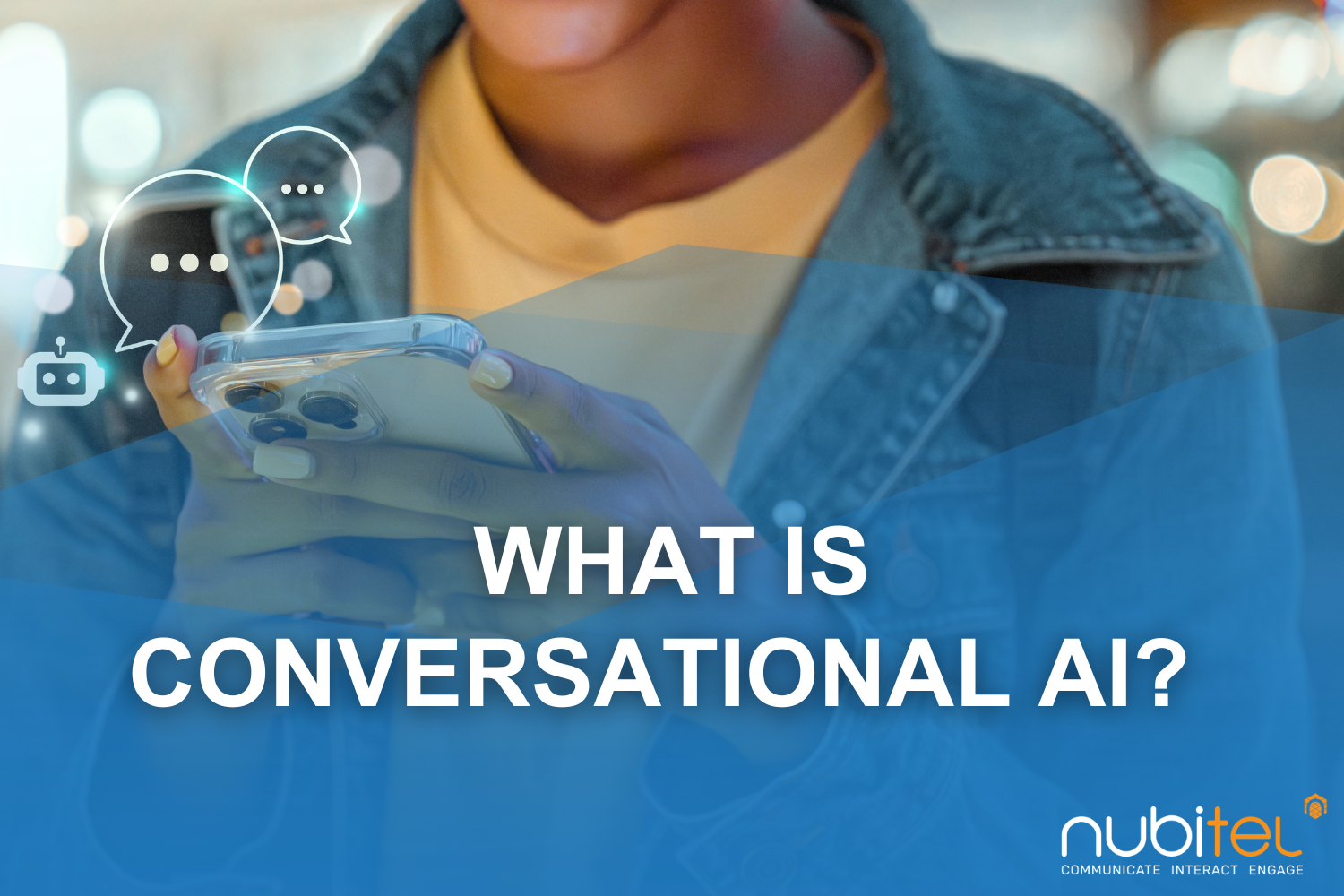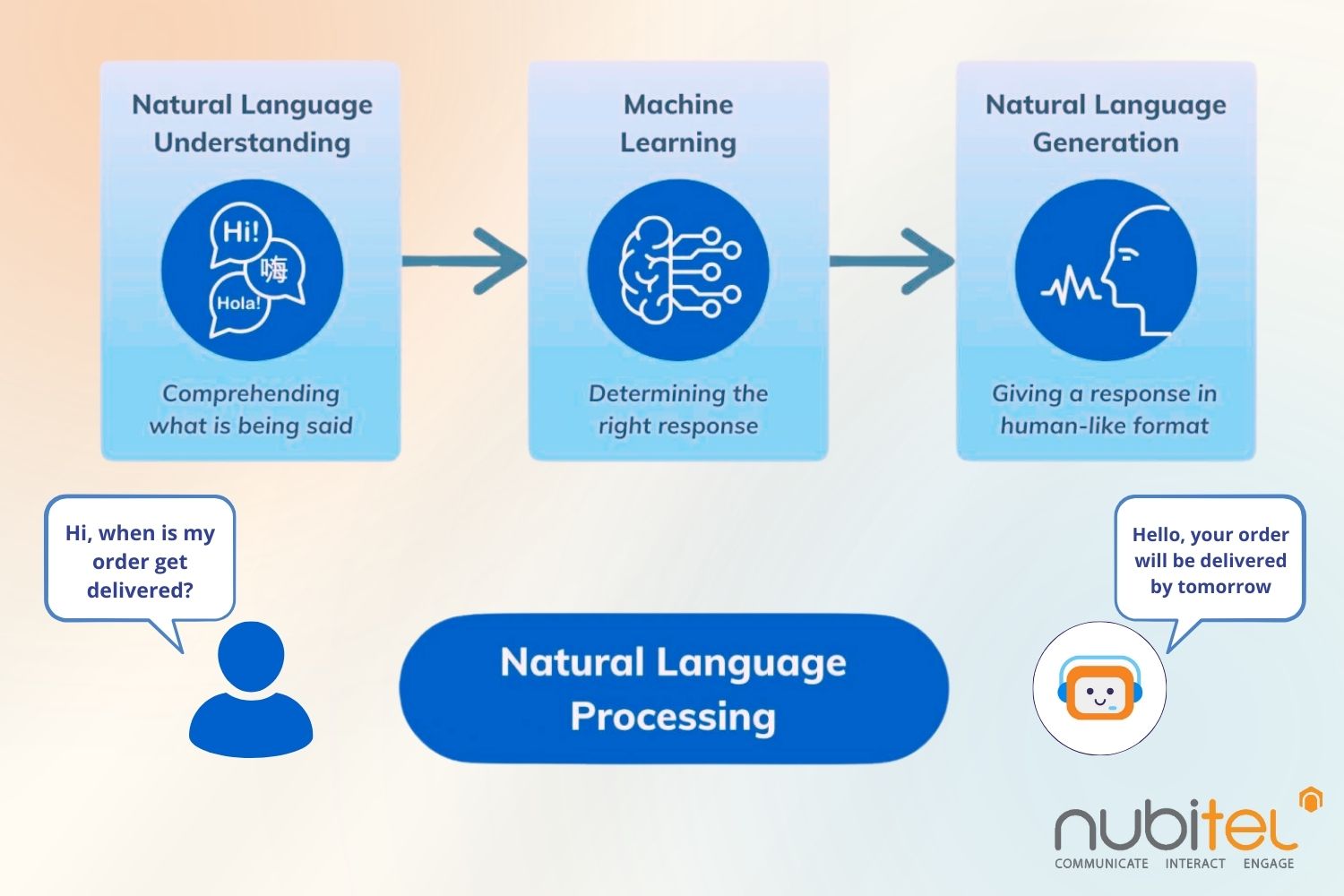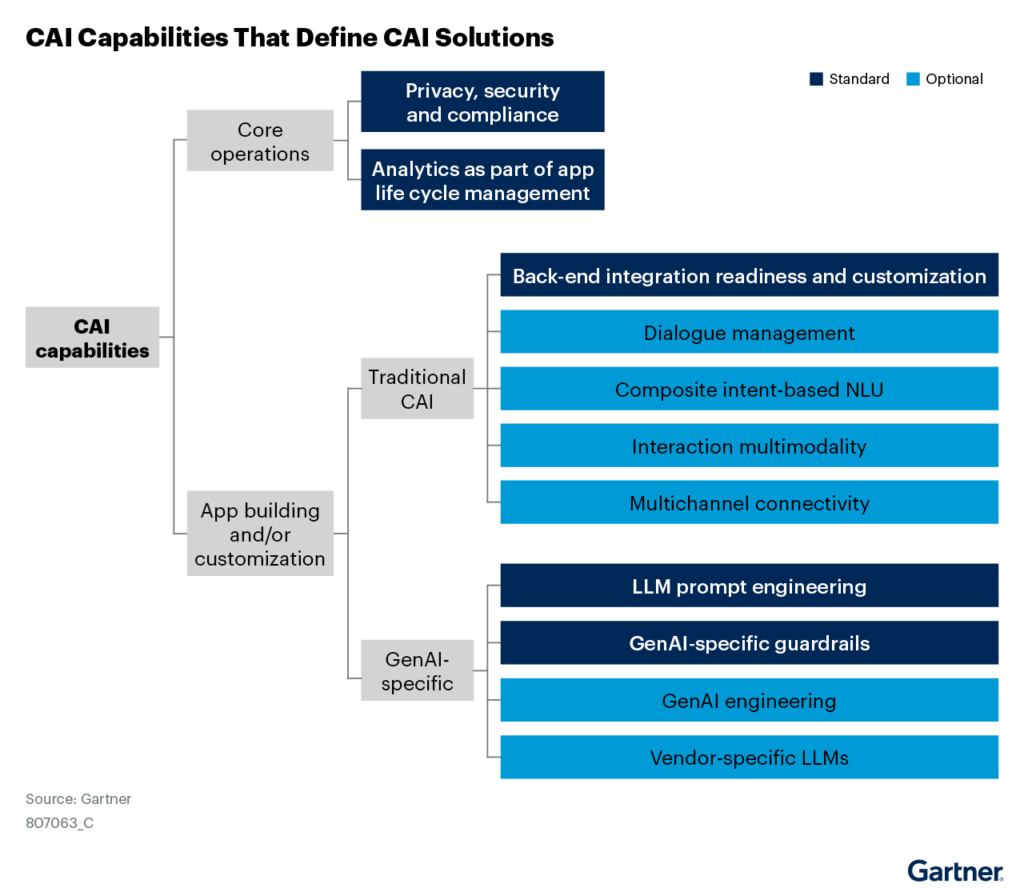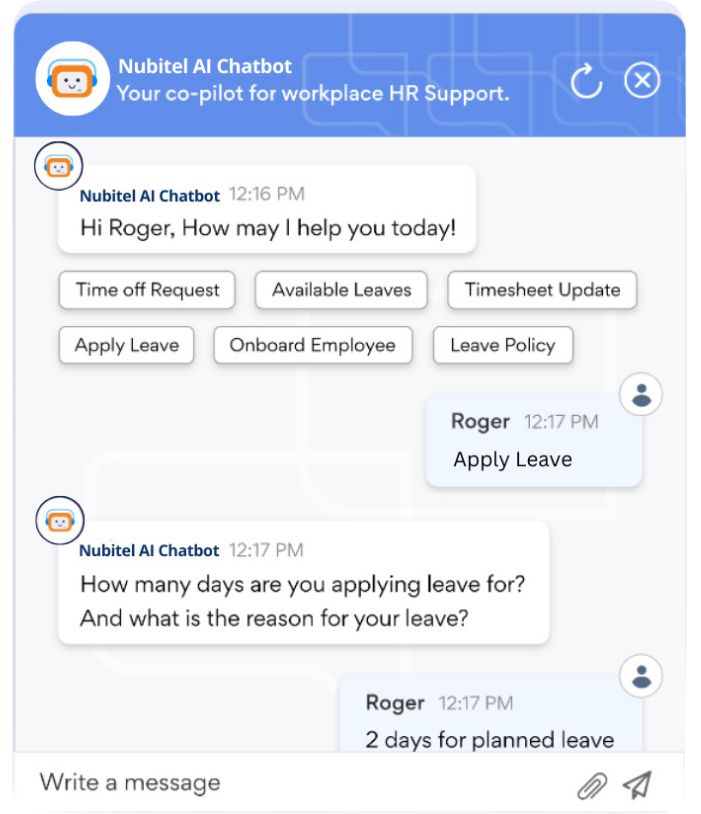Conversational AI has become a game-changing technology, transforming how we engage across industries and revolutionizing the role of AI in the contact center. The global market for Conversational AI is predicted to grow at an impressive annual rate of 22% from 2020 to 2025 and reach an estimated value of nearly $14 billion. Gartner highlights that Generative AI (GenAI) has accelerated the advancement of Conversational AI (CAI) platforms, driving increased competition, market consolidation, vendor differentiation and a clearer use-case focus. In this blog, we’ll delve into what Conversational AI is and explore how it is meaningfully reshaping customer and employee experiences for businesses of all sizes.
Table of Contents
ToggleWhat is Conversational AI?
Conversational AI refers to a type of artificial intelligence (AI) that designed to simulate natural, human-like dialogue. It involves smart software systems that use Natural Language Processing (NLP), Machine Learning (ML), and various AI technologies to understand, process, and reply to human language. This technology drives virtual assistants for voice and chat that replicate human interactions in areas like customer service, e-commerce, and beyond.

In customer service, conversational AI allows businesses to respond instantly and efficiently to customer inquiries. For example, when a customer types, “Where is my order?” into a company’s chatbot, the system can identify the user, retrieve order information, and reply with a relevant response like, “Your package is on its way and will be delivered tomorrow by 5 PM.” This reduces wait times, improves customer satisfaction, and frees up human agents to handle more complex issues.
How does Conversational AI work?
Unlike traditional chatbots that function on rigid rules and scripted responses, Conversational AI utilizes proprietary algorithms to deliver context-aware, natural interactions.
Conversational AI harnesses the capabilities of Natural Language Processing (NLP) and Machine Learning (ML). NLP allows AI to not only recognize and interpret human language, but also produce it, resulting in more natural interactions. NLP consists of two important components: Natural Language Understanding (NLU), which deciphers user input and intent, and Natural Language Generation (NLG), which converts data into understandable, human-readable replies.
Let us take a step-by-step look at how Conversational AI works:
-
- Input Processing: The system accepts user input, either entered text or spoken speech. In the event of voice input, speech recognition technology turns the audio to text.
-
- Natural Language Understanding (NLU): The AI examines the processed input to determine the user’s underlying purpose and extracts critical elements such as the request’s context and any relevant entities (such as specific names, dates, or locations).
-
- Dialogue Management: Using ML models, the system evaluates the intent and context to determine the best response. Machine learning enhances this step by continuously learning from past interactions to improve decision-making. For example, an AI-powered chatbot in e-commerce might recommend additional items based on previous customer behavior.
-
- Natural Language Generation (NLG): The system then creates a response that mimics real human language, usually in text format. This guarantees that the output is intelligible and conversational.
-
- The created response is returned to the user, either as text on a screen or as synthesized speech, resulting in a smooth and genuine interaction.

Key Capabilities in Conversational AI
Conversational AI platforms are required to provide productized functionalities for creating, customizing, and deploying conversational applications. The capabilities are categorized into standard and optional types, with each one catering to needs within the Conversational AI landscape.
Traditional Conversational AI Features:
-
- Managing dialogue to ensure a smooth conversational flow.
-
- Composite intent-based Natural Language Understanding (NLU) enables precise interpretation of user queries.
-
- Interactions that incorporate multiple modes to facilitate different forms of communication.
-
- Connecting through multiple channels for steady interaction across various platforms.
Features Specific to Generative AI:
-
- Advanced customization through prompt engineering for Large Language Models (LLMs).
-
- Guidelines tailored for Gen AI to ensure ethical and effective use of AI.
-
- LLMs tailored to specific vendors to utilize unique features.

Examples and Use Cases of Conversational AI
Conversational AI offers a wide range of applications for both businesses and consumers. Here are some examples.
Automating Customer Service
Customer service teams can leverage AI agents in multiple ways to enhance their interactions with clients. Conversational AI software has proven to be a flexible tool for enhancing customer experiences, from greeting customers and providing 24/7 support to offering self-service options and tailoring recommendations.
For instance, a healthcare clinic can improve the process of rescheduling appointments using AI agents. Patients who want to modify their appointments can engage with an AI agent that provides useful support, enabling them to check availability and confirm new times. Automating these tasks improves the patient’s experience and simplifies the clinic’s customer service operations as a whole.

Automation for HR and IT Support
Conversational AI provides numerous opportunities for assisting employees. An employee looking to request leave can engage with the HR help desk, where an AI agent, connected to the company’s leave management system, assists them throughout the process. It clarifies the different leave options available and offers tailored suggestions based on their leave balance and departmental policies.

When it comes to IT support, if an employee faces a technical issue, the AI agent can help by walking them through troubleshooting steps to fix the problem without having to bring in the IT team. If the issue is still unresolved, the AI agent can escalate it to an available IT specialist, along with a detailed summary of the actions that have been taken so far.

Conversational AI Benefits and Risks:
The main advantages of Conversational AI include:
-
- 24/7 availability
-
- Quick and easy access to information/support
-
- Increased operational efficiency and cost savings
-
- Improved user engagement and tailored consumer experience
-
- Capability to scale one-to-many interactions
The risks and problems of Conversational AI are:
-
- Potential for biased or objectionable outputs
-
- Over-reliance and mistaken trust, as well as a lack of empathy
-
- Difficulty managing complicated edge situations
-
- Concerns about privacy and security of user data
- Concerns about privacy and security of user data
Embracing the Future with Conversational AI
Conversational AI technology revolutionizes how businesses deliver customer service by enabling fast, personalized and seamless interactions. It empowers your team to boost productivity and scale your operations intelligently.
Nubitel AI agents stand out as highly advanced, autonomous bots designed to handle various customer interactions—even the most complex ones. Purpose-built to enhance human connection, these AI agents work seamlessly alongside your human agents and foster collaboration that drives exceptional service outcomes. With quick setup and no technical expertise required, Nubitel AI agents allow you to get started effortlessly from day one.
As AI technology evolves in 2025 and beyond, staying updated on the latest advancements is critical for delivering top-tier customer experiences and maintaining a competitive edge. By adopting best practices and strategically investing in ongoing AI improvements, you can future proof your customer service operations and continue to impress your customers.





